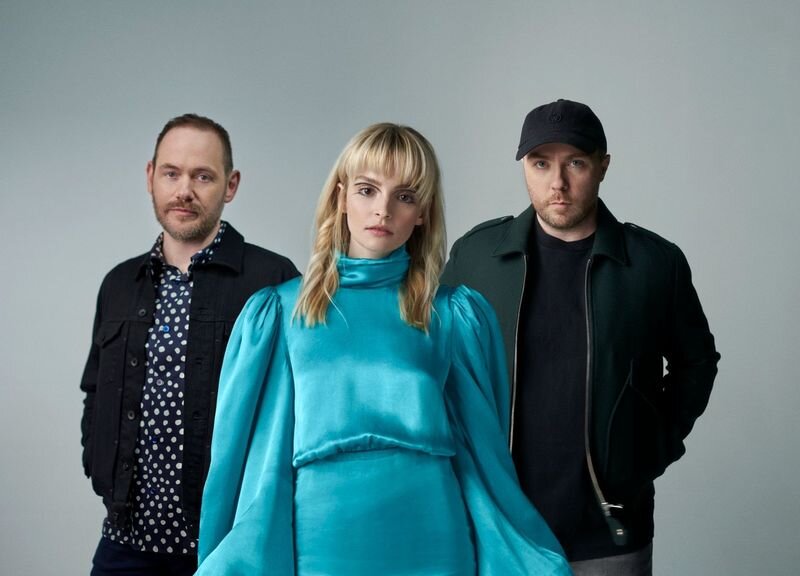CHVRCHES - SCREEN VIOLENCE
Is Screen Violence CHVRCHES best work to date? It’s hard to say, but what it does is continue CHVRCHES consistent run of producing excellent albums built on lively hooks, rhapsodic spaces and rich storytelling.
When Iain Cook of CHVRCHES made the ambitious claim that their fourth studio album, Screen Violence, was “easily [their] best work as a band”, a deep wave of doubt set in. Not because their 2013 debut, The Bones Of What You Believe, has been placed on the top shelf of the best albums of the last decade, or because they have since forged a name as an incredibly talented and consistent album band; it was the fact that Screen Violence was created virtually through file sharing and zoom calls during a global pandemic. Even the recruitment of The Cure’s Robert Smith didn’t ease those swirling questions of how can this album be the band's best work when they didn’t even share the same room?
Boy, was that doubt washed away like a sandcastle in high tide.
Using the narrative of the dystopia within the realms of the black mirror, CHVRCHES tackle topics of misogynistic hypocrisy, cancel culture, reality filtering and trolls. Whilst this is not new social commentary, CHVRCHES wrap the narrative in a horror embroidered silk-screen as evident in the album cover, the anxious synth builds, and the erratic drops.
Creeping in with ‘Asking For A Friend’, Lauren Mayberry delivers a sullen, ‘I don't want to say that I'm afraid to die / I'm no good at goodbyes, I can't apologise / And if I don't stop now will it follow me down?’, as Cook and Martin Doherty erect synth frames, securing them with hammer thuds, to encase the ominous 80’s world that Screen Violence sonically lives in. This case serves as the padded wall cell for ‘He Said She Said’‘s volatile chorus cry “I feel like I’m losing my mind” as Mayberry unpacks the conflicting expectations of the modern woman; “He said "You need to be fed" / "But keep an eye on your waistline" and / "Look good, but don't be obsessed"”.
Don’t be mistaken by the colourful melodies on Screen Violence, the lyrics are rather dark with tracks often depicting death; the death of concepts, ideas and death in a more literal sense. It is the premise for ‘How Not To Drown (feat Robert Plant)’, the death of idols as a representation of cancel culture on ‘Good Girls’, the line “Don’t want to find your daughter in a body bag” on ‘Final Girl’, the suicide discussing opening on ‘Lullabies’, and the ominous, claustrophobic dreamsequence of ‘Violent Delights’. The gothic undertones partnered with the soft, angelic tone of Mayberry’s vocals are both haunting and euphoric, capturing the gloom of the horror genre and the neon clad 80’s lights. Picture Starcourt Mall from Stranger Things in its shiny new form and Starcourt Mall post-Shadow Monster destruction and you have Screen Violence.
Whilst it looks pretty grim, CHVRCHES does feed positivity into their commentary. On ‘California’ Mayberry offers the rather satisfying take, “No one ever tells you / There’s freedom in failure”. The general social commentary is a refreshing take on the perils of screen consumptions, positioned not as a warning sign, but as acknowledgement.
Is Screen Violence CHVRCHES best work to date? It’s hard to say, but what it does is continue CHVRCHES consistent run of producing excellent albums built on lively hooks, rhapsodic spaces and rich storytelling.
Tammy Walters
★★★★☆

